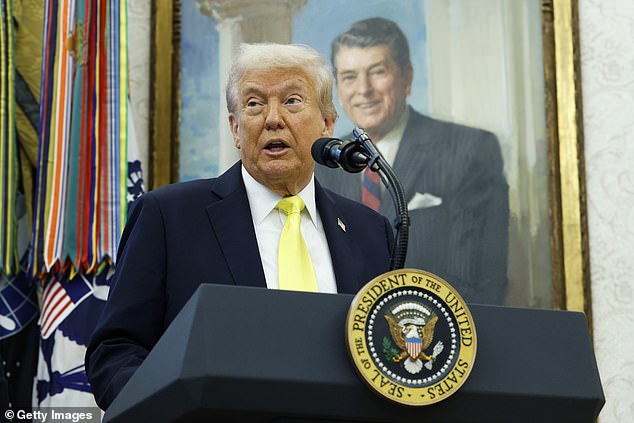For someone known for breaking political traditions, Donald Trump might be about to do something no sitting president has done before—personally attend a Supreme Court hearing involving his own policies.
The president revealed that he’s considering heading to the nation’s highest court to watch arguments surrounding his controversial tariff measures.
A Rare Move for a Sitting President
While presidents typically appear at the Supreme Court only for ceremonial occasions, Trump said he’s thinking of being present when the Court convenes on November 5.
On that day, justices will hear arguments about whether a president has the constitutional authority to impose tariffs under the International Emergency Economic Powers Act (IEEPA)—a law originally passed in 1977 to give presidents certain powers during national emergencies.
Trump Calls It a Landmark Case
Speaking to reporters from the Oval Office, Trump didn’t hold back on emphasizing how significant he believes the case is.
“We have a big case coming up in the Supreme Court,” he said.
“That’s one of the most important cases in the history of our country.
That’s why I think I’m going to the Supreme Court to watch it. I’ve not done that before. And I’ve had some pretty big cases.”
He went on to describe the situation in dramatic terms, adding, “I think it’s one of the most important cases ever brought because we will be defenseless against the world.”
A Challenge to Presidential Power
The legal dispute centers on how much power a president truly has to act unilaterally on trade.
Trump’s use of the IEEPA has drawn criticism for bypassing Congress, allowing him to impose a series of tariffs on multiple countries without legislative approval.
His argument rests on the claim that global trade practices present an “extraordinary threat” to the United States—language that triggers his emergency powers under the 1977 law.
Defying Norms Once Again
If Trump actually follows through and attends the hearing, it would mark a highly unusual moment in modern presidential history.
The move could raise eyebrows among constitutional scholars who warn it might blur the lines between the executive and judicial branches—a potential challenge to the separation of powers principle.
Still, Trump has never been one to shy away from defying expectations.
Since returning to office in January, he’s doubled down on his pro-tariff stance, applying new duties on imports from countries around the world.
Whether his strategy stands or falls may soon rest in the hands of the Supreme Court justices he’s now planning to face in person.
What Comes Next
As November 5 approaches, legal analysts and political observers are watching closely.
The outcome of the case could redefine how much economic authority a president can wield without congressional oversight.
For Trump, it’s not just about policy—it’s about precedent.
And if his words are any indication, he plans to witness that moment in history firsthand.
Share on Facebook «||» Share on Twitter «||» Share on Reddit «||» Share on LinkedIn
